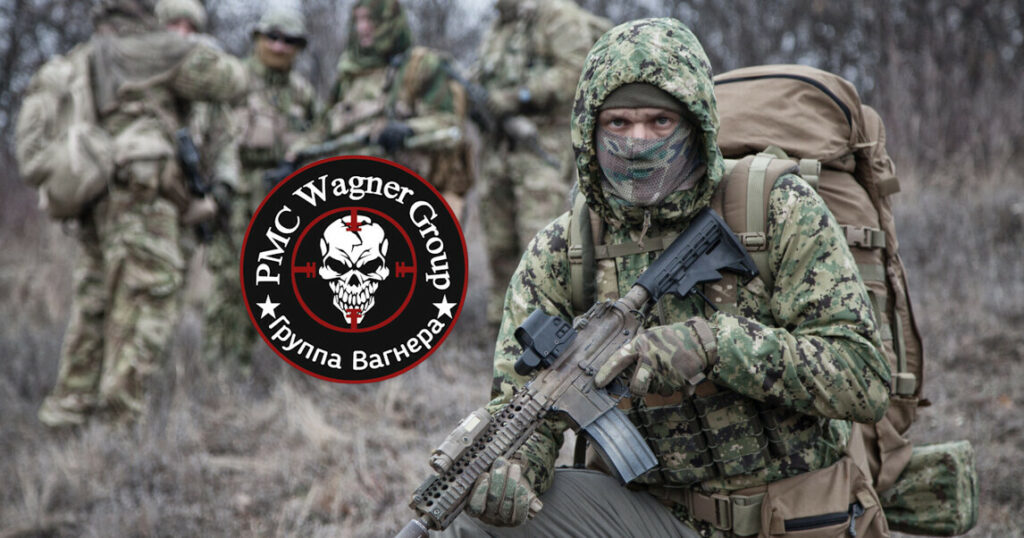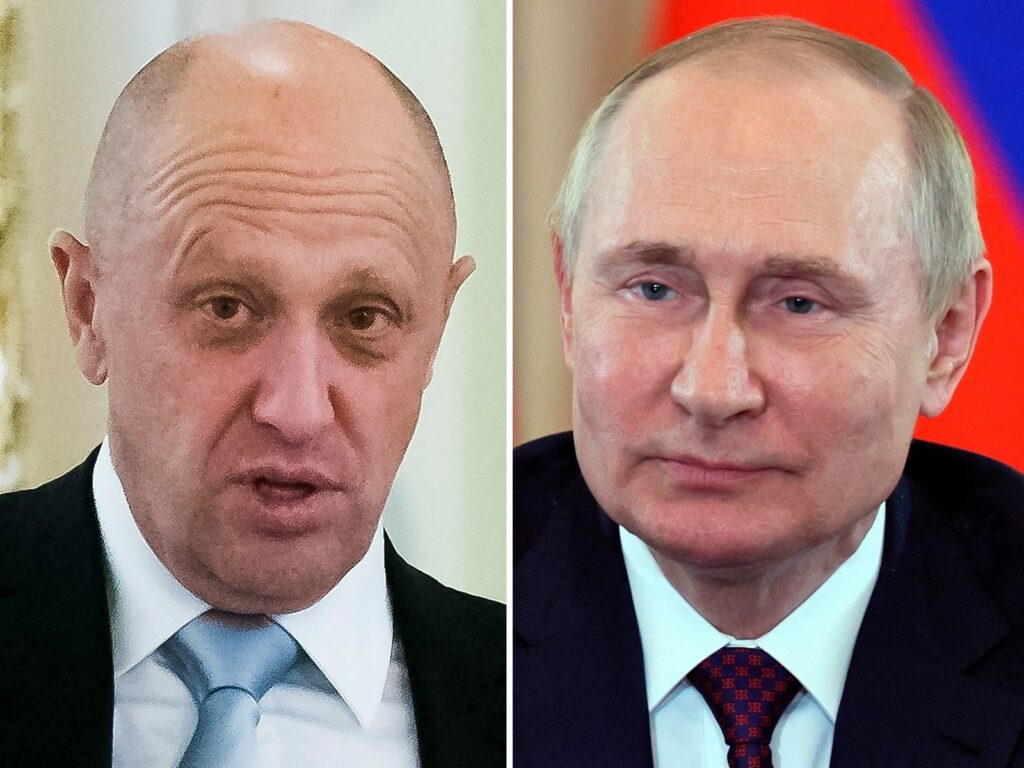
- The Kovalchuk and the head of the presidential administration Anton Vayno are Prigozhin’s vertical connections, while the GRU, FSIN, and governors are his horizontal connections.
- A private military corporation is a useful resource for any power with global ambitions but it should only serve the needs of the state and stay out of the public eye.
- Despite Prigozhin’s newfound fame, Putin has never trusted him enough to give him any state-level authority.
- Prigozhin is clearly becoming a full-fledged politician with revolutionary beliefs but is not yet prepared to challenge Putin.
- Prigozhin is not a threat as long as Putin is reasonably powerful and is able to maintain the balance between the army and the influence of the Wagner Group.
Yevgeny Prigozhin, the leader of the Wagner mercenary squad, has endured unheard-of infamy both domestically and internationally as a result of Russia’s invasion of Ukraine. He is both lauded and vilified, and there is an ongoing discussion about his relationship with President Vladimir Putin, the privileges he receives, and even whether or not he has presidential aspirations. Every victory for Prigozhin is viewed as evidence of his power and bright future, while every setback is viewed as a portent of his impending ruin. Neither version is truly realistic right now.
Prigozhin is still acting as a private individual despite his newfound fame. But his informal and precarious relationship with the state may come to an abrupt end. Putin has never trusted Prigozhin enough to give him any state-level authority. Unlike some others, such as those who worked with Putin early in his career, he did not have the opportunity to make the president feel good about him at work or as a friend.
Instead, Prigozhin’s exceptional opportunity came along after Crimea was annexed. Due to the wars in Syria and the Donbas, as well as Russia’s standoff with the West, a market for “grey” geopolitical strategies that would be difficult for official institutions to implement, arose. Mercenaries and media platforms like troll factories, which were novel in Russia and allowed Prigozhin to work covertly and without being held accountable, were the first informal influence techniques that it used.
The gold mine had been found by Prigozhin: these quasi-state instruments might intervene if the state proved unable to carry out a particular responsibility satisfactorily (or perhaps did not want to be seen to do so). Putin was drawn to this tactic, which is also sought in the confrontation with Ukraine. The position of the entrepreneur is still unofficial. Putin has agreed to hand off some duties but hasn’t given Prigozhin any official support. As it would be totally at odds with Putin’s notion of total and coordinated power. The president has never attempted to use Prigozhin as a check on official institutions like the army or security services, as doing so would be at odds with Putin’s idea of total and coordinated power. He has also never seen the shady businessman as a replacement for official institutions like the army or security services.
In simple terms, there was a need to find ways to make the situation at the front better. According to Putin, the resources of private military companies should be used to bolster the state rather than degrade it. In addition to lacking formal standing, Prigozhin also lacks direct access to Putin on his own terms, relying heavily on the president’s buddies, close acquaintances, and senior officials to serve as his go-betweens.
Proigozhin and his Wagner Army
Wagner effectively served as a contractor for the General Staff in Syria, establishing a connection between Prigozhin and senior members of the GRU, Russia’s military intelligence service, which in turn caused the group to engage in its first clashes with the Defence Ministry. In the meantime, Wagner’s presence in a number of African nations aided the business in developing unique ties with Russian ambassadors there, which irked the Foreign Ministry.
More recently, Prigozhin’s unconventional recruitment strategies—scouring Russian prisons for fresh mercenaries—have raised eyebrows. The Federal Penitentiary Service (FSIN), Justice Ministry, Prosecutor General’s Office, and Federal Security Service (FSB), who pushed to get these men locked up, are enraged by his recruitment effort because if they survive the war, they could now be released back into society.
The Kovalchuk and the head of the presidential administration Anton Vayno are Prigozhin’s vertical connections, while the GRU, FSIN, and governors are his horizontal connections. As a result, the businessman is totally dependent on others and has few opportunities. There is no assurance of widespread government aid or funding.
Criticism of Proigozhin and his Army

The simmering confrontation between Prigozhin and the military leadership, represented by Chief of Staff Valery Gerasimov and Defence Minister Sergei Shoigu, quickly worsened when Prigozhin was given some latitude to engage in the battle against Ukraine. After several months of an unpleasant campaign, Prigozhin ran against them with the help of his media tools, the two defence officials were able to convince the president that Wagner’s independence constituted a threat to the army and President Putin responded by placing Gerasimov in control of the entire “special operation,” demonstrating how quickly he can correct a crisis and disregarded Prigozhin’s views as well as those of his adoring military bloggers, a large group of pro-war activists, and others who openly dislike Gerasimov and Shoigu.
The elite has not taken Prigozhin’s criticism of government figures, lawmakers, and political organisations kindly; they see it as a threat to the state given his independence, ambition, and hyperbole. Within his purview (Wagner’s actions, troll farms, and some minor media), he may have Putin’s full support, but outside of it, he is politically powerless.
The rest of Prigozhin’s projects have been noticeably less fruitful, including his fruitless conflict with St. Petersburg Governor Alexander Beglov, his empty threats to have YouTube blocked in Russia, and his continual legal setbacks. His overtly anti-mainstream political ideals are radical and obviously impractical, and he lacks his own political apparatus. Even his ties to the Kovalchuks are becoming looser since their goals are slowly drifting apart and it’s getting harder for the brothers to speak well of their protege-bulldozer.
The long-standing alliance between Prigozhin and the presidential administration is also starting to fray. The people in charge of handling domestic issues have not been pleased with his political demagogy, attacks on government organisations, or attempts to taunt Putin’s staff by threatening to form a political party—which would be a hassle for everyone in the Kremlin. Prigozhin doesn’t lack adversaries and as indicated by the significant increase in criticism of the billionaire, the security services have now joined to attack him alleging that Prigozhin’s private army is full of criminals.
Last but not least, Prigozhin’s apparent standing among regular Russians has considerably diminished. He is hardly ever cited in surveys analysing people’s trust in politicians. In a Levada Centre poll conducted at the end of last year, only three respondents out of 1,600 named him. However, none of these challenges portends Prigozhin’s impending fall. Putin still views him as a true patriot battling for the future of the nation; not always gracefully, but frequently more successfully than his official adversaries. He is still able to communicate with Putin in restricted ways. Contrarily, the difference between the position that Putin has given Wagner and the one that Prigozhin believes he deserves is widening every day. A private military corporation is a useful resource for any power with global ambitions but it should only serve the needs of the state and stay out of the public eye. It shouldn’t start its own projects, and it shouldn’t have a political goal either.
That’s how Prigozhin functioned until recently. He has not only gained notoriety, but he is also clearly becoming a full-fledged politician with beliefs that are nothing short of revolutionary. Prigozhin is not yet prepared to oppose Putin. But—and this is a crucial “but”—it’s challenging to maintain sanity and composure after losing a significant portion of your own army to the brutal slaughter of battle.
Prigozhin is not a threat as long as Putin is reasonably powerful and is able to maintain the balance between the army and the influence of various armed groups. Prigozhin, though possibly not initially Putin himself, might defy the authorities at the smallest change. Men become monsters in times of war, and if the state exhibits even the smallest hint of weakness, their irrationality and desperation may pose a threat to it.
(The author is a post-graduate student in International Relations at Kalinga University, Raipur. The opinions expressed are the author’s own)
Aayush Pal is a freelance writer on contemporary geopolitical developments. The views expressed in his work are entirely his own.
